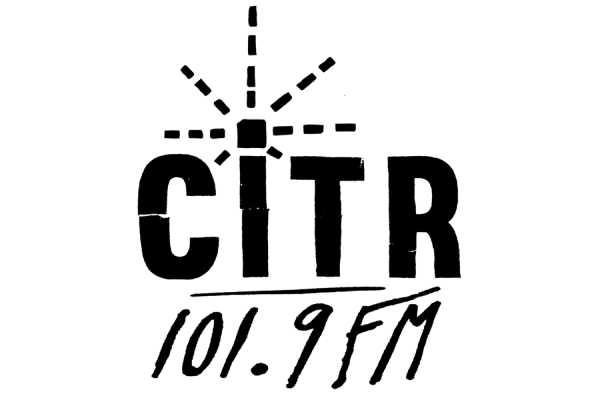Have you ever wanted to work in the music industry? To combine your business acumen and passion for music with scruffy haircuts, smelly vans, sticky venue floors and electronics? At this year’s Transmission conference in Victoria, one of the discussion topics was Next Generation Leadership. The Transmission guide quipped, “Are our industry’s silverbacks ready to embrace the young gorillas who are more quickly adapting to the fundamental changes that are affecting how the next generation is consuming creative content?”
Transmission is an annual “boutique” music conference—an elite gathering of music executives and related industries. After begging admission for a second year, I had the opportunity of listening to an eclectic cross-section of people representing artists, labels, internet providers, publishers, mobile devices and other digital media.
Transmission also quoted Vered Koren from EMI Canada: “Music is not just being consumed by middle-aged men. Enough said.” And, looking around, the conference room was full of middle-aged white men. Ironically, artists weren’t welcome at the table, and one younger delegate pointed out that discussing “The Next Generation” was hard with so few young faces in the crowd. The exclusivity of the conference and cost of registration prevented young entrepreneurs from attending, as well as those slogging up the ranks in their respective labels.
Discussion circled the following ideas: the industry is currently shrinking, there are few footholds for entrants, and there is no time for mentorship. Instead of starting at the bottom, young people are bypassing their elders bent on protecting their empires, and starting innovative new companies. However, a healthy industry would breach the disconnect between the experienced industry exec and the young innovator. And, how does mentorship happen if newbies have to carve out their own niches?
Upon my return to Vancouver, I checked in with several Vancouver companies to see how they mentor and train young people. I started with Bill Baker, who started Mint Records with Randy Iowata in the halls of CiTR. “I don’t think either one of us had any desire to work in the record industry. If anything we found it a little bit grim,” commented Baker.
“Randy and I had worked at CiTR for so long, we’d become very familiar with the industry,” said Baker. “We’d been working with record labels at the station and it became something we were addicted to almost … The label was a way of finding something we could do that felt the same and still in the same area of interest without being there.”
Baker and Iowata had mentors from other labels who helped explain the nuts and bolts of the business. Baker noted people at Cargo Records and Nettwerk, and most importantly, an entertainment lawyer who explained the legal aspects of the business.
Paying it forward, Mint has had two years of non-stop interns from Capilano University’s arts and entertainment management diploma program. Mint integrates their interns into all aspects of the business and includes them in the weekly conference meetings. “We try to be very inclusive with the folks that do intern with us. All someone needs is the desire to do something,” Baker added. “We’ve had so much luck with people who have taken initiative and gone for it.”
Initiative is also required to get that first toehold. After learning about an opening from a friend, local songwriter Katie GoGo walked into S.L. Feldman & Associates with her resume to snag an internship. S.L. Feldman is one of Canada’s top three booking agencies, representing Norah Jones, Bryan Adams and Sarah McLachlan (and Discorder friendly bands like Bison B.C., D.O.A. and You Say Party! We Say Die!).
GoGo tested out the business side of the music world in the licensing department with orders to find a theme song for a show on MTV. Unfortunately, her time there was short-lived when S.L. Feldman made cuts to the department. GoGo enjoyed the steep learning curve, but plans to go back to school in September before jumping back in. “I think now’s a great time to learn about what you want to do … so that when the economy’s in a better place they can be ready for it.”
Justin Wachtel began his career by researching entertainment companies and landing an internship at MTV. From there, he interned at Frontside Promotions Group and returned for a part-time position after graduating from UBC. Wachtel’s role in the company grew and he’s now a product manager focused on radio promotions.
“Because of the climate of the industry, it’s a very difficult one to be involved in. It takes a lot of work and a lot of dedication and a lot of passion for the industry. Don’t be deterred or discouraged by the initial resistance you might get—or the hard work,” Wachtel said in referrence to the changing industry.
The key seems to be working for free—getting that internship and proving your worth. Unfortunately, this only works if you are young and have nothing to lose, live with your parents or sold your stocks before the recession.
But beware the thought that formal education will get you ahead in the industry. A study prepared for the Cultural Human Resources Council of Canada entitled A National Training Strategy for the Canadian Music Industry describes the need for business training in today’s industry and the low regard of the industry for education. The study states that “the Music Industry has been largely not supportive of or not satisfied with the efforts of the formal education system … most practitioners within the Music Industry attribute their knowledge and skills acquisition to on-the-job training and/or being self-taught. They rank formal education very low on their list citing lack of time and high cost.” Formal education only tends to opens doors by creating internship opportunities.
“I think you need a general foot in the door before you can pry and start asking in depth questions about the industry,” Wachtel said. “You need to earn an insider’s trust before they start giving you all this information and introducing you to people.” Echoing Baker and GoGo, Wachtel also found people willing to help him along the way.
“Since I got hired at Frontside, the owner of the company [Geoff Goddard] has become a mentor to me. Being in the industry since he was 17, he has this wealth of knowledge that he’s been able to pass on to me.”
Once you break in, it’s all a matter of hard work—showing up and getting the job done. “Young people are the best people to work in the industry because they know what’s fresh, they know what’s coming up,” GoGo added. “But it’s still a long haul to have the payoff for it—you have to put a lot of hard work in to reap the benefits.” Gather up your courage and go get that internship.



